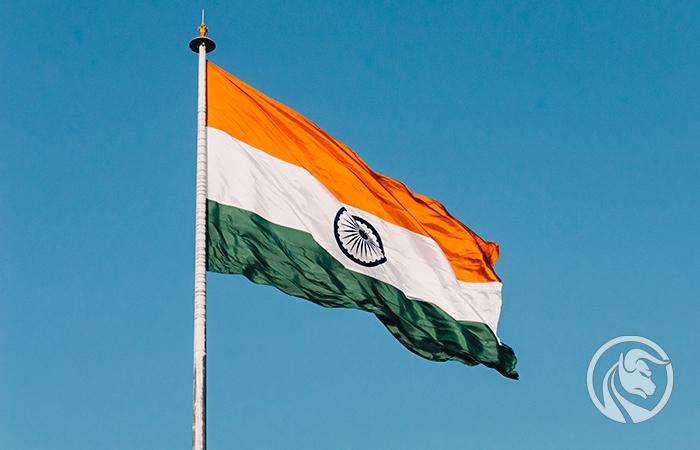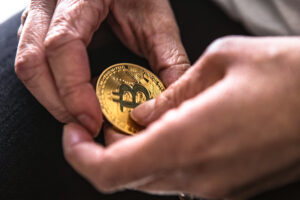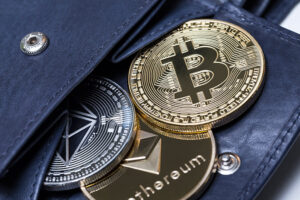India wants its cryptocurrency, there will be a digital rupee
As early as 2018, India wanted to prohibit the use of its banking system to purchase cryptocurrencies, but the Supreme Court did not agree. Cryptocurrencies are Gaining in popularity in India, so Indians have made a return - have just announced that they intend to introduce their own national cryptocurrency. This is another country in the world that explicitly admits that it is working on introducing official digital money.
We have state-owned cryptocurrencies in more and more countries. In Venezuela even pensions are paid in the official petro cryptocurrencybecause this is the only way to win against the inflation raging for years, caused by sanctions imposed by the US and problems with the sale of crude oil.
Digital Yuan also starts in China, where, after tests in multi-million metropolises, it turned out that the years of work were not wasted and that everything works perfectly. At the same time, the cryptocurrency mines were closed (under any pretext) to show that none Bitcoin, Ethereum, and even native chainlink they will not be welcome competitors to the most important and basic cryptocurrency, which is to be e-yuan.
India also wants a cryptocurrency
Over the digital euro CBDC a central bank is also working, so cryptocurrencies are undoubtedly our future. The only question is - which of them? Another country has just announced that it will have its own digital money.
T Rabi Shankar, vice president of the Indian Central Bank (RBI) admitted that India is already working on a "phased-in strategy" of the official digital currency. This is an interesting turn, because three years ago India tried to fight cryptocurrencies. In 3, the central bank in India banned the use of the banking system to buy and sell cryptocurrencies. In short: you couldn't pay by bank transfers or Indian bank cards for cryptocurrencies. However, investors coped quickly - thanks to private and international payment operators, they could easily buy and trade cryptocurrencies. The ban was therefore a fiction, and two years after its introduction, it was lifted by the Supreme Court of India.
In this country - as in most countries in the world - cryptocurrencies are therefore not regulated. They are not forbidden, but the government is not sure what to do with them. Some banks allow you to buy e.g. Bitcoin through them, others prohibit it.
India: centralized national cryptocurrency
Now, however, this is about to change. India is working on digital money to be centralized. Transactions are to be traceable in real time, which, however, raises considerable doubts. It will be a cryptocurrency, but firstly centralized, secondly non-anonymous, and thirdly - which is probably the worst - it will be inflationary, because the central bank will be able to "reprint" more coins, just like with traditional money. So it is hard to expect that the e-rupee will interest anyone except the Indians themselves, who will simply use it for everyday payments.
However, it is not known at the moment what stage the project is at, so its assumptions may still change. According to local media, the tests should start next year. The problem is ... a lot of interest in cryptocurrencies in India, which could cause a massive withdrawal of RBI from bank accounts and converting them to a digital version. And this could be very risky for the current banking system, as it would reduce the lending capacity of financial institutions.
Before the digital rupees are launched, the law also needs to be changed, because for now the Indian bank can only issue traditional money. The Indian government, however, wants to reduce the largely uncontrolled circulation of cash, but also facilitate transfers without the intermediation of banks - also international ones. Attachment to the digital national currency would also protect investors from the exchange rate risk of decentralized cryptocurrencies, the prices of which are often subject to large fluctuations.






















![Forex Club – Tax 9 – Settle tax on a foreign broker [Download the Application] Forex Club - Tax 9](https://forexclub.pl/wp-content/uploads/2024/02/Forex-Club-Podatek-9-184x120.jpg?v=1709046278)
![Trading View platform – solutions tailored to the needs of traders [Review] trading view review](https://forexclub.pl/wp-content/uploads/2024/03/trading-view-recenzja-184x120.jpg?v=1709558918)
![How to connect your FP Markets account to the Trading View platform [Guide] fp markets trading view](https://forexclub.pl/wp-content/uploads/2024/02/fp-markets-trading-view-184x120.jpg?v=1708677291)
![How to invest in ChatGPT and AI? Stocks and ETFs [Guide] how to invest in chatgpt and artificial intelligence](https://forexclub.pl/wp-content/uploads/2023/02/jak-inwestowac-w-chatgpt-i-sztuczna-inteligencje-184x120.jpg?v=1676364263)






![Izabela Górecka – “Success on the market depends not only on knowledge, but also on emotional stability” [Interview] Izabela Górecka - interview](https://forexclub.pl/wp-content/uploads/2024/04/Izabela-Gorecka-wywiad-184x120.jpg?v=1713870578)
![WeWork – the anatomy of the collapse of a company valued at $47 billion [WeWork, part II] wework bankruptcy story](https://forexclub.pl/wp-content/uploads/2024/04/wework-bankructwo-historia-184x120.jpg?v=1711729561)
![Adam Neumann – the man who screwed up Softbank [WeWork, part AND] adam neumann wework](https://forexclub.pl/wp-content/uploads/2024/04/adam-neumann-wework-184x120.jpg?v=1711728724)


![The most common mistakes of a beginner trader - Mr Yogi [VIDEO] Scalping - The most common mistakes of a beginner trader - VIDEO](https://forexclub.pl/wp-content/uploads/2024/03/Scalping-Najczestsze-bledy-poczatkujacego-tradera-VIDEO-184x120.jpg?v=1711601376)
![Learning patience: No position is also a position - Mr Yogi [VIDEO] Scalping - Learning patience - No position is also a position - VIDEO](https://forexclub.pl/wp-content/uploads/2024/03/Scalping-Nauka-cierpliwosci-Brak-pozycji-to-tez-pozycja-VIDEO-184x120.jpg?v=1710999249)
![When to exit a position and how to minimize losses - Mr Yogi [VIDEO] Scalping - When to exit a position and how to minimize losses - VIDEO](https://forexclub.pl/wp-content/uploads/2024/03/Scalping-Kiedy-wyjsc-z-pozycji-i-jak-minimalizowac-straty-VIDEO-184x120.jpg?v=1710336731)



















Leave a Response